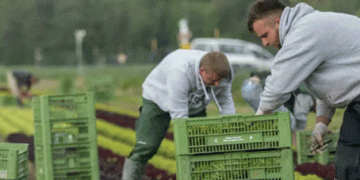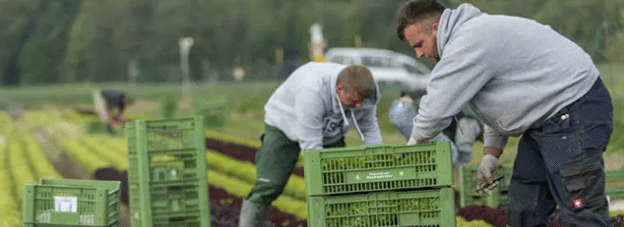Germany’s vegetable industry is facing a worrying trend: a reduction in the number of farms and a lack of successors to take over existing operations. Despite efforts to attract new farmers, the industry is struggling to attract interest, threatening Germany’s ability to produce its own vegetables. Germany currently imports two-thirds of its vegetables, producing only a third of what it consumes domestically.
Decline of farms and lack of continuity
In 2023, the number of vegetable farms in Germany fell to 5,973, down 2.3% from the previous year. This represents a continued decline from more than 12,000 farms in 2000. A survey conducted by WirGarten found that as of 2020, 75% of vegetable farms did not have guaranteed succession plans. Efforts to find successors are often unsuccessful, as evidenced by WirGarten’s failure to find a successor to the 20-hectare farm, despite extensive recruitment efforts and significant investment in advertising.
Education and workforce issues
A shortage of skilled labor is exacerbating the problem. According to the Federal Institute for Vocational Education and Training (BiBB), the number of apprentices in vegetable farming fell to 159 in 2023, a decrease of 20.4% on the previous year. The number of trainees has dropped by 30% over the past two years, highlighting the critical shortage of new entrants in the field. Jakob Hoekema from the Central Association of Horticulture (ZVG) emphasizes the urgent need for well-trained professionals in this sector.
Economic pressures and structural shifts
Economic pressure is also leading to a reduction in vegetable cultivation. The sector faces low producer prices, which are largely dictated by powerful wholesalers and discount retailers. This, coupled with high capital requirements for land, machinery and infrastructure, makes growing vegetables a financially risky endeavor. Small farms, in particular, struggle to compete with larger operations that benefit from economies of scale.
Potential solutions and support initiatives
WirGarten has proposed several solutions to overcome the crisis in vegetable growing:
- Market investigation: Conduct an industry investigation by the Federal Cartel Office to ensure transparent pricing and fair competition.
- Subsidies for small farms: Advocate for EU agricultural subsidies to support small farms over large enterprises to improve the sustainability of the vegetable growing sector.
- Minimum prices: Establish minimum prices or alternative market models to stabilize the vegetable market.
WirGarten also offers support to farmers through its website, providing more than 35 tools, guides, online courses and guides on topics such as farm management, financing and direct marketing. These resources are aimed at helping small farms implement alternative marketing and business models that can offer better prices through direct sales.































